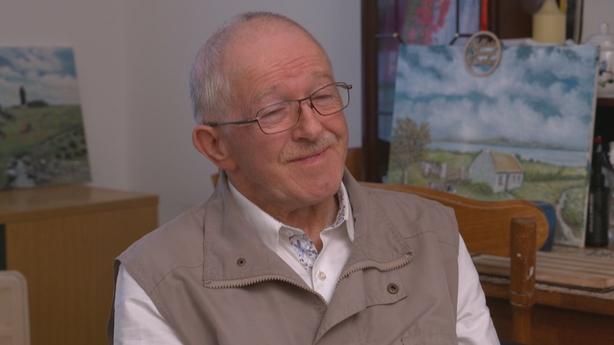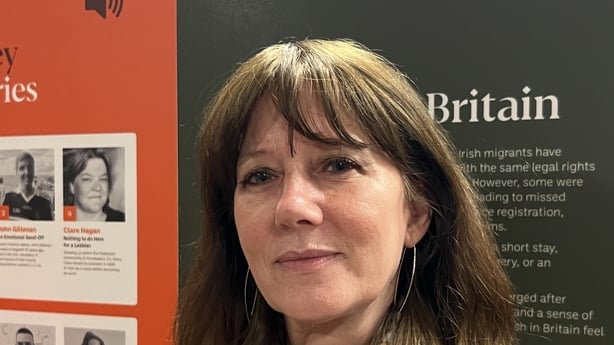An oral history project that documents the stories of Irish emigrants in Britain has been launched.
The Look Back to Look Forward exhibition features stories from Irish people who went to Britain over the past 50 years.
They include 66-year-old Bartley Duggan from Conamara, who arrived in 1973 only able to speak Irish.
Mr Duggan has suffered nerve damage from the use of vibration tools.
He said Irish workers were pushed hard by the overseers and expected to pour 400 metres of concrete a day, sometimes seven days a week.
"If you didn't do what you were told you'd be shown the gate and you didn't get paid," he said.
The project also features a daughter of one of the Birmingham Six who campaigned to clear his name, and of a woman who organised gay and lesbian cèilidhs in London.

Katy Doyle works with survivors of Irish institutions and said a large proportion emigrated to Britain as many had no family in Ireland.
The exhibition, which opened at the Irish Cultural Centre in Hammersmith, charts the progress that the Irish community has made from the 1960s and 70s to the position in 2021, where they were the highest earning of all ethnic groups in the UK, according to a report by the Commission on Race and Ethnic Disparities.

The exhibition also features contributions from Irish cultural figures such as actors Siobhán McSweeney, Adrian Dunbar, Aisling Bea, broadcaster Terry Christian.
Dara Ó Briain, who is a patron of the Irish Cultural Centre, said Irish people have become "very much woven" into the society in Britain.
"It's actually very much not remarked upon, which is such a journey from no blacks no dogs no Irish in the 60s, that to arrive over as an Irish person is almost neutral," he said.
Many contributors say the Good Friday Agreement has made a big difference
Angie Birthill, who worked in the Irish Womens' Centre, said that during the 1980s Irish families had 'IRA' daubed in paint on their doors.
She also pointed out that there were around 10,000 Irish people a year being arrested under the Prevention of Terrorism Act.
Irish in Britain CEO Brian Dalton said the pattern of migration has changed as people are now coming for five to ten years, while in the past they would "drop anchor" and stay longer term.
The oral history interviews feature in both a touring exhibition throughout November and an online exhibition.
It will be deposited for permanent public access at The Archive of the Irish in Britain at London Metropolitan University.






